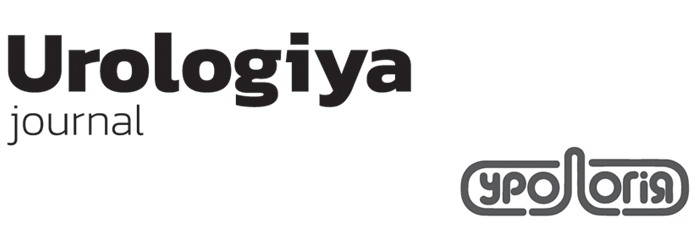О.E. Stakhovskyi
Enhanced recovery after surgery for bladder cancer patients after radical cystectomy with ileal neobladder
Objective. Study of the Enhanced recovery after surgery (ERAS) protocol in patients with urinary bladder cancer after cystectomy with neobladder.
Маterials and methods. Retrospective analysis of the use of ERAS in patients with bladder cancer after radical cystectomy compared with standard postoperative approach. The study group included 21 patients, during which ERAS protocol was used. The control group consisted of 43 matched patients with similar clinical characteristics, which were treated before the implementation of study protocol. The comparative analysis of parameters in study and control groups was carried out using the “hi-square” method. Tо evaluatу efficacy of study protocol intra- and postoperative complications were analyzed. Analysis of the the duration of stay in the hospital, the intensity of pain manifestations on the 10-point visual-analog scale for 3 days after the operation, and the level of readmition in 30 days after the operation.
Results. There was a significant difference in the rate of postoperative stay of patients in the hospital among the study groups. In the ERAS protocol group this parameter was 9.2 ± 2. 1 and a for the controln group 13.4 ± 3.1 days (p <0.01).
The pain intensity scores were lower in the study group (3.6 ± 1.2 points) versus (5.1 ± 1.3 points) control group (p <0.05). This can be explained by the use of prolonged epidural anesthesia in the postoperative period, smaller incisions for access and the presence of fewer postoperative drainages.
Conclusion. The presented results of the study indicate the promising use ERAS protocol in the treatment of patients with invasive urinary carcinoma, that underwent radical cystectomy with ileal neobladder. Such approach reduces the intensity of pain in the postoperative period and decrease the duration of postoperative stay in hospital.

